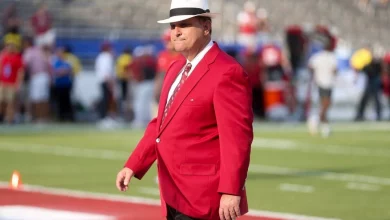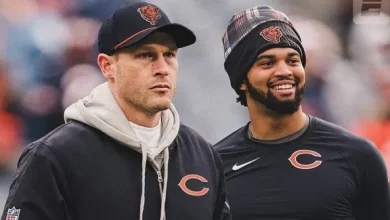Houston Astros – Background, Key Figures, and Information

The Houston Astros are a professional baseball team based in Houston, Texas, and are part of Major League Baseball’s (MLB) American League (AL) West Division. Since their establishment in 1962, the Astros have played a significant role in the evolution of baseball, both in terms of competitive success and the cultural impact they’ve had on the city of Houston and the sport as a whole.
1. Origins and Early Years (1962-1969)
The team was originally founded as the Colt .45s in 1962 by the ownership group led by banker and entrepreneur, Roy Hofheinz. The franchise was created to fill a void in Houston, as the city sought to become a major player in professional sports. The team’s original name was a reference to the Colt revolver, a nod to the city’s western heritage. In 1965, the team changed its name to the Houston Astros to reflect the growing influence of the space industry in the city. The Houston-based NASA Space Center was a central reason for this name change, symbolizing the team’s commitment to exploration and progress.
Throughout the early years, the team struggled to find consistent success on the field. The Astros spent much of their early history in the National League, but after a shift to the American League in 2013, they found new opportunities for growth and success. During the late 1960s and early 1970s, the Astros made a mark with their innovative playing styles and their famous “AstroTurf” stadium, which was installed at the Astrodome, the world’s first domed stadium. The artificial turf revolutionized the way baseball was played, leading to a shift in strategy, particularly in how players approached the outfield.
2. The 1970s and 1980s: Rise to Contender Status
The Astros’ performance began to improve in the 1970s, with players like Joe Morgan, Jimmy Wynn, and Rusty Staub making a significant impact on the team’s competitiveness. The team reached its first playoff appearance in 1980, after winning the National League (NL) West Division, but they lost in a heartbreaking five-game series to the Philadelphia Phillies in the NL Championship Series (NLCS).
Despite their competitive nature during this period, the Astros did not clinch a National League pennant until 2005. The 1980s also saw a number of stellar individual performances, including that of Nolan Ryan, a future Hall of Famer and one of the most dominant pitchers in MLB history. Ryan spent a portion of his career with the Astros from 1980 to 1988, cementing his legacy as one of the game’s greatest players.
In the 1980s, the Astros were known for their consistent pitching, strong defense, and their emphasis on small ball—a strategy that capitalized on moving runners over, stealing bases, and manufacturing runs rather than relying on power hitting. During this era, the team also started developing a strong following among the local community in Houston, with fans loyal to their team despite the lack of postseason success.
3. The 1990s: Struggles and Hope
The Astros entered the 1990s with promise but again struggled to capitalize on their potential. Though the team had great players like Craig Biggio and Jeff Bagwell, both of whom would go on to be inducted into the Baseball Hall of Fame, the Astros often fell short of postseason success. However, the 1990s were also a transformative period for the Astros, as they began to build a more competitive team, including their acquisition of the star pitcher Mike Hampton and slugger Luis González.
In 1993, the Astros began playing in a new stadium, the AstroDome, which had hosted the team since 1965. The stadium was regarded as a marvel of modern architecture, often called the “Eighth Wonder of the World,” and provided a unique home-field advantage.
Despite flashes of brilliance, the Astros failed to win a National League pennant in the 1990s, yet they continued to build their team around strong players such as Bagwell and Biggio, both of whom were foundational pieces for the team. The Astros’ lineup and pitching rotation were consistently among the best in the National League.
4. The 2000s: Building Toward Success
The 2000s saw the Astros experience their most significant period of sustained success up until that point. The team captured multiple division titles and reached the pinnacle of the National League in 2005, when they made their first World Series appearance in franchise history. In the 2005 World Series, the Astros faced the Chicago White Sox and were ultimately swept in a four-game series, but the franchise had finally achieved its ultimate goal of reaching the postseason.
This period also saw the emergence of a few critical figures for the Astros. Roy Oswalt, the ace pitcher who became the face of the rotation for much of the decade, was dominant, alongside Lance Berkman, a slugger who provided offensive support. The team was built on a solid mix of pitching, defense, and power hitting, setting the stage for greater future success.
While the Astros were competitive throughout the 2000s, they faced increasing competition in the National League, particularly with the rising strength of the New York Mets and St. Louis Cardinals. Despite these challenges, the Astros remained an active contender in the NL Central Division.
5. The 2010s: The Rebuild and Resurgence
The 2010s marked a dramatic shift for the Houston Astros, as the team underwent a deep rebuild. The Astros were in the midst of a multi-year struggle, but they laid the foundation for success through a complete restructuring of the organization. This included a focus on analytics, scouting, and player development—methods that would eventually help the team build one of the most formidable rosters in baseball.
In 2011, the Astros hired Jeff Luhnow as their general manager, a key move that set the course for the team’s transformation. Luhnow, who came from a background in analytics and player development, implemented a new approach to talent acquisition, focusing on international scouting, minor league systems, and data-driven decision-making.
By 2015, the Astros were back in the postseason, making their first playoff appearance in a decade. They had developed an impressive young core, including players like José Altuve, Carlos Correa, George Springer, and Dallas Keuchel. The 2017 season would be a pivotal one, as the Astros broke through to win the World Series for the first time in franchise history.
6. 2017 World Series: The Astros’ Championship Glory
In 2017, the Houston Astros reached the pinnacle of baseball, winning the World Series in a thrilling seven-game series against the Los Angeles Dodgers. The Astros’ victory was historic, as it was the franchise’s first-ever championship, and it signified the culmination of years of rebuilding and hard work. José Altuve was named the American League Championship Series (ALCS) Most Valuable Player, while George Springer was named World Series MVP.
The 2017 World Series marked a turning point for the Astros and their fanbase. The team became a symbol of resilience, having overcome both on-field and off-field obstacles to reach the top. The victory was particularly poignant for the city of Houston, which was dealing with the aftermath of Hurricane Harvey that had devastated the city just a few months prior. The Astros’ victory brought a sense of pride and joy to a community that had been through so much.
However, the championship was later tainted by a sign-stealing scandal. In 2019, allegations emerged that the Astros had illegally used technology to steal signs during the 2017 season. After an investigation, the team was penalized with a significant fine, the loss of draft picks, and the suspension of key figures like manager A.J. Hinch and general manager Jeff Luhnow. Despite the controversy, the Astros’ on-field success remained a testament to their talent and determination.
7. Key Figures in Astros History
The Astros have been home to some of the greatest players in baseball history. Key figures in the franchise’s history include:
- José Altuve: The Astros’ star second baseman, known for his dynamic bat and leadership on and off the field. Altuve has been a consistent force for the Astros and a key contributor to their World Series win in 2017.
- Craig Biggio: A Hall of Fame inductee, Biggio is one of the franchise’s most beloved figures. Known for his versatility, Biggio spent his entire career with the Astros, playing multiple positions and earning numerous accolades.
- Jeff Bagwell: A power-hitting first baseman, Bagwell was another Hall of Fame figure who helped define the Astros’ success in the 1990s and early 2000s. His contributions to the team’s offense are legendary.
- Nolan Ryan: Ryan, one of the greatest pitchers in baseball history, had a memorable stint with the Astros. Known for his blazing fastball, Ryan is synonymous with pitching excellence.
- George Springer: An explosive outfielder and postseason hero, Springer played a key role in the Astros’ championship run in 2017, earning the World Series MVP.
8. Looking Ahead: The Future of the Astros
The Houston Astros continue to be one of the most successful franchises in Major League Baseball. Despite the challenges posed by the sign-stealing scandal, the team has maintained its competitive edge, making several deep playoff runs in recent years. The Astros are expected to remain a top contender in the American League for years to come, with stars like Alex Bregman, Yordan Alvarez, and Framber Valdez leading the way.
The future of the Houston Astros looks bright, with a continued focus on analytics, player development, and smart roster moves. As they continue to adapt to the changing landscape of baseball, the Astros will remain a dominant force in the game, with a rich history and a promising future ahead.









